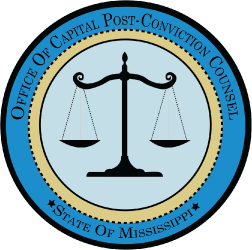Does Capital Post-Conviction represent people who are convicted of murder, but not sentenced to death?
No. The Legislature established CPCC solely to protect the collateral post-conviction rights of persons on Death Row at Parchman (men) and the Central Mississippi Correctional Facility (women).
What does “post-conviction” mean?
Post-conviction litigation takes place after the defendant’s direct appeal is denied by the Mississippi Supreme Court and/or the United States Supreme Court. It addresses issues that could not have been addressed on direct appeal because appellate attorneys are limited to the trial record (i.e., transcript and evidentiary exhibits) when preparing the appeal and arguing on behalf of the defendant.
What are some of the countless examples of situations where a post-conviction claim would be appropriate?
Jurors were unconstitutionally struck by the prosecution based on their race or gender.
The trial attorney failed to sufficiently investigate and put on evidence of mitigation at trial. Mitigation is anything that might have convinced a juror to vote for a sentence less than death.
After losing on direct appeal, the United States Supreme Court or the Mississippi Supreme Court issued an opinion which would arguably be beneficial to the defendant if applied retroactively.
The prosecution failed to turn over exculpatory evidence to the defendant prior to his or her trial. Exculpatory evidence is that which clears, or wholly or partially excuses, the defendant of the conduct on which the conviction was based.
What is the process for filing a post-conviction claim in a capital case?
Post-conviction counsel prepares and submits a petition, usually supported by affidavits, to the Mississippi Supreme Court asking for relief for the defendant (now referred to as the “petitioner”) on the merits of the petition and/or for an evidentiary hearing before the trial judge in the circuit court where the petitioner had been convicted of capital murder.
